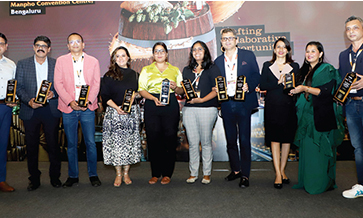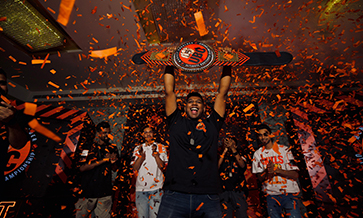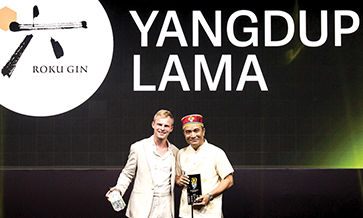Excerpts from the panel discussion on ‘What are investors looking for?’ during Brews&Spirits Expo 2923 in Bengaluru.
Moderator: Vikram Achanta, CEO, Tulleeho
Panelists:
K. Ganesh, Serial Entrepreneur & Promoter of Big Basket
Nayan Deekonda, CEO, Anthill Ventures
Nitin Vishwas, Co-founder, Moonshine Meadery
Vikram: Nitin, could you just walk us through your funding journey?
Nitin: Home brewing started in 2014. Moonshine Meadery was incorporated in 2016, after raising funds from family and friends from around the world. Very early on we were told this is an industry where growth isn’t going to be very fast. Someone rightly said: If you go to venture capitalists up front, you’re taking on rocket fuel. So, you’re likely to burn your seat, burn the pilot, as well as the passengers with you.
You get folks who are looking for quick investments and quick returns. There was a large venture capitalist who wanted to lock me up in a room until I said I would accept his cheque! I was very scared to do so because I’d heard of smaller brands taking large cheques and yet not growing in the expected way – mainly because they are in an industry that is plagued with a lot of regulatory challenges.
When you’re accepting VC cheques, there is an expectation that comes with it; expectations that are a lot higher; and then you’ve got to start to deliver as well. So, in 2018-19, we accepted only small cheques from angel investors.
It’s better to take cheques from people who are going to give you more intrinsic value. So, we had to cherry-pick the kind of investors we wanted in the initial stages.
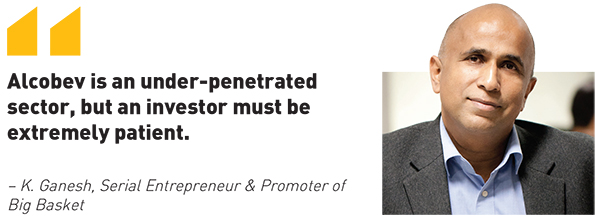
Vikram: Ganesh, what drew you to the alcobev sector? I ask because it’s out of your normal investing stream. What drew you to Goa Brewing as an entity?
Ganesh: When a venture capitalist invests money, he is willing to take very high risks, but he is expecting disproportionate returns. In businesses like mine – Big Basket or Bluestone, Portea Medical or Home Lane – the brands consume a lot of money in marketing. But when they grow, they grow exponentially.
Although it is a nightmare for a venture capitalist, I have a lot of respect for people who have ventured into the alcobev industry. If you run in this, then believe me you can run any complex business in India! Unless you understand all the nasty business of distribution of alcohol in India you will not be able to succeed.
I feel alcobev is an under-penetrated market, especially craft beer, which is only 3% of the beer market. In this sector, one must be extremely patient. I lost all my hair already; I don’t have more to lose. I can wait for another 10 years to get my returns on investment.
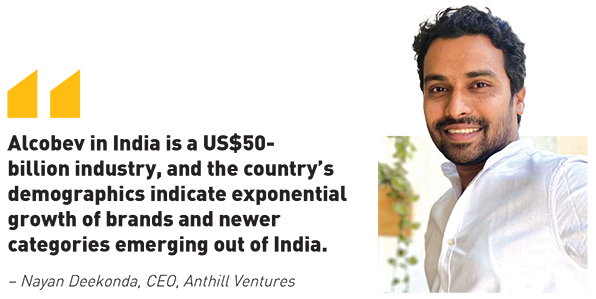
Vikram: Nayan, can you tell us about Anthill Ventures and what prompted the founders to enter this line of business?
Nayan: Antil Ventures is an early-stage venture capitalist and investment firm, where the focus has been consumer, media and health tech. In 2021-22 we saw a lot of action in white spirits, particularly gin. Prasad (founder and CEO of Anthill Ventures) felt there was a need for sectoral focus on alcobev, considering it is such a large space in India.
Alcobev in India is already a US$50-billion industry, and the country’s demographics indicate exponential growth of brands and newer categories emerging out of India. Innovators and disruptors are typically boot-strapped and funded by family and friends but are looking at their first institutional cheque. That’s where Anthill comes in.
We found some amazing brands to partner with, like Moonshine Meadery, Salud Beverages, or Matinee Gin. Anthill Ventures and Antil Spirits essentially are venture builder models. In our conversations with founders and existing players in the ecosystem, we found that those with a compelling story and strong USP for their consumers have a fitting chance to succeed.
Ganesh: Most importantly, the government does not see this as a startup sector; doesn’t see this as a sector which creates employment. The government’s relationship with the alcobev sector is very highly divided – on the one hand they obviously want to tax it at high rates for revenue, and on the other hand, it creates barriers all around.
Our cost of production is the lowest. You can produce at scale very affordably and export it to West Asia or Africa, or other places where price matters. Somewhere the government must step in and change its relationship with and outlook on the alcobev sector.
Vikram: Do you think traditional angel funds are skeptical or scared of this sector? Have there been incidents which have affected or scarred them in the past?
Nayan: I was part of Bira 91 before; I was there for a long time. I have seen it all the way to Series D and E. I have seen how there were believers, individuals, family friends who have come forward and bet on a brand like Bira.
What is more important from the investor standpoint is how you tackle the maze of red tape, how you navigate a particular setback in your journey. Also look for someone with strategic support – it need not always be money; it could also be in terms of know-how. I think the landscape is very encouraging: we now see more investors from traditionally ‘dry’ Gujarat.
Vikram: There are other sources of funding now emerging. Nitin, how was your Shark Tank experience?
Nitin: I do not know about the funding bit of it, but it did a damn good job of getting the word out. It is a great place to get your branding! Performance marketing and social media are great; you cannot beat the power of television. Personally, I would not ask you to go take money from Shark Tank.
When we spoke with Anthill, the first thing that Nayan’s team told us is that you are in one too many markets. Why not just sort of pull back and just restrict yourself? Now, this is not something that you would hear from a venture capitalist. This is the kind of advice you are looking for!
When you look at Shark Tank, we all look at it from a great above-the-line experience, 15 minutes of national television fame. We got about ?18-odd-crore worth of marketing, free of cost!
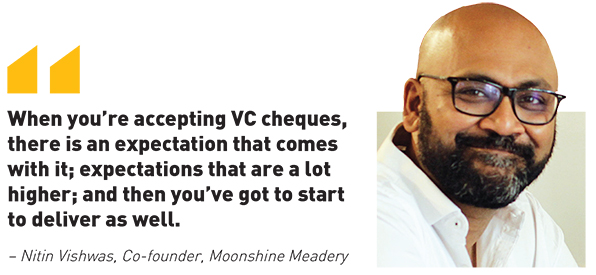
Vikram: India has the potential for 10 Sulas and 10 Biras as strong consumer brands in the alcobev space, but we have just one of each. Do you see a time when this will change?
Nayan: The short answer is ‘yes’. The bottlenecks that we all talk about can be dealt with on a day-to-day basis. But the consumer is willing to explore, experiment, innovate, etc. Brands are introducing more variety, better engagement formats, whether it is on premise or off.
I think we need to also zoom into regional, because there’s ample craft, action going on in very, very focused way in the spaces that are sizable. Regionally we are already starting to see success stories. It’s only a matter of time before an attractive ROI and validation of smaller brands and investors will take place. And India has so many more countries in itself!












